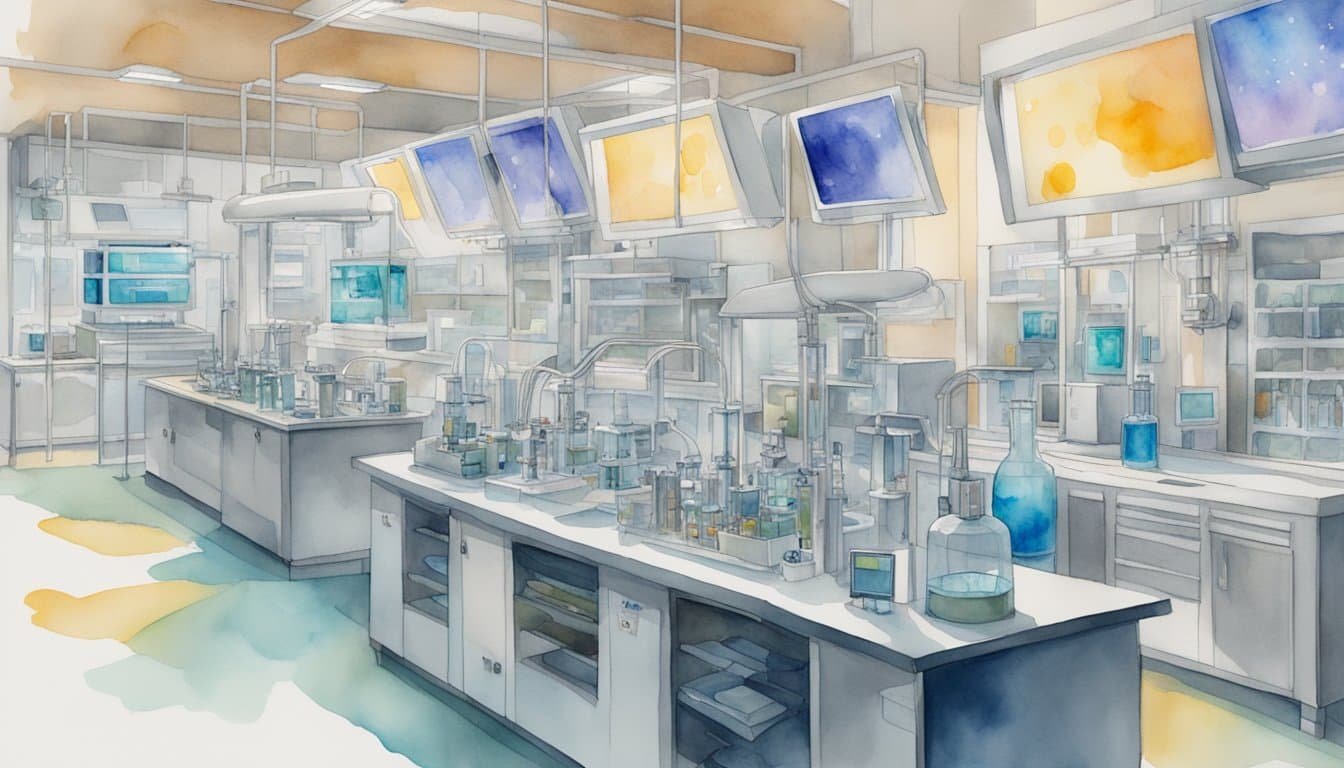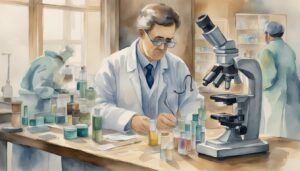Understanding Designer Babies
Designer babies represent a significant crossroad in reproductive technology and ethics.
They stir up debates surrounding the moral implications and the extent to which we could and should manipulate human genetics.
Basics of Genetic Engineering
Genetic engineering is the cornerstone of creating designer babies.
This science involves altering the DNA sequence of an embryo to control its genetic makeup.
Techniques like CRISPR-Cas9 have made gene editing more precise, potentially allowing us to eliminate genetic diseases or even select desired traits before birth.
Embryo Selection and IVF
In vitro fertilization (IVF) is a process whereby embryos are created outside a woman’s body and later implanted into the uterus.
During IVF, multiple embryos are typically produced, and embryo selection is a critical step where potential parents can choose an embryo with specific traits, increasing the likelihood of a child having desirable qualities.
Preimplantation Genetic Diagnosis (PGD) and Genetic Testing
PGD is an advanced genetic testing procedure that, combined with IVF, allows for the analysis of an embryo’s genetic defects before implantation. Preimplantation genetic testing (PGT) involves screening for monogenic disorders—that is, diseases caused by mutations in a single gene.
This presents a powerful tool in preventing heritable genetic conditions and is a step toward the concept of a ‘designer baby’, where an embryo’s complete genetic makeup could potentially be customized.
Potential Benefits and Risks

Diving into the world of designer babies opens the door to groundbreaking possibilities along with serious ethical dilemmas.
This section explores the tug of war between medical hope and the socio-ethical maze that is genetic engineering.
Addressing Genetic Diseases
The prospect of eradicating genetic diseases such as cystic fibrosis, heart disease, and diabetes is one of the most compelling benefits of designer babies.
Through techniques like preimplantation genetic diagnosis (PGD), parents could dramatically decrease the chances of their children inheriting these debilitating conditions.
Imagine a society where the threat of certain birth defects becomes a thing of the past!
Potential for Enhancing Human Capabilities
Alongside medical interventions, the allure of enhancing human capabilities like intelligence, height, and personality traits shines brightly.
Selecting for preferred attributes could lead to a society rich with variety or, conversely, one that amps up the ethical debate on eugenics.
Gender selection remains a controversial yet sought-after possibility, highlighting society’s intricate dance with bioethics.
Safety and Ethical Concerns
The path to designer babies is fraught with safety and ethical concerns.
The implications of tinkering with human life pose profound questions: Are we facing a new era of eugenics? How will society handle sex selection for non-medical reasons, such as family balancing? Moreover, while eye color may seem trivial, the ethical implications behind choosing such traits signal a deeper inquiry into our values.
Above all, ensuring the safety and well-being of the children born from these technologies remains paramount.
Social and Regulatory Implications

As the possibility of designer babies looms closer, the intertwined strands of social fabric and regulatory frameworks are set to be profoundly affected.
This section delves into how society may adapt and what governments might do to ethically guide this powerful technology.
Impact on Society
Designer baby technology heralds significant shifts in societal dynamics.
Concerns center on a new social divide between those who can afford genetic enhancements and those who cannot, potentially exacerbating social inequality.
The vision of future generations influenced by genetic selection raises questions about diversity and individuality.
Ethical debates also spark intense discussions about the essence of humanity and the values that society seeks to uphold.
Government Regulation and Bioethics
In the regulatory arena, governments and bioethic institutions are grappling with how to oversee the birth of this technology.
In light of controversial experiments like those by He Jiankui, it’s vital to develop oversight that prevents negative consequences while fostering innovation.
Discussions often revolve around the concept of social justice, ensuring that advancements benefit all of society.
The case for robust government regulation is clear, yet it must be balanced to avoid stifling potential breakthroughs that could remedy genetic diseases.
Technological Advances in Reproductive Medicine

Recent years have seen impressive strides in reproductive medicine, from enhancements in in vitro fertilization (IVF) to groundbreaking genome editing technologies. These advancements are paving new pathways for addressing infertility and preventing genetic disorders.
Innovations in In Vitro Fertilization
IVF technology has evolved significantly since its inception, with new protocols and techniques that improve the likelihood of a successful pregnancy.
Today, fertility clinics use advanced blastocyst culture methods, enabling embryos to develop longer before transfer, which increases the odds of implantation.
Sophisticated genome sequencing tools have also been incorporated, permitting genetic screening for hereditary diseases prior to implantation.
Genome Editing Technologies and Their Evolution
Genome editing, particularly the emergence of technologies like CRISPR-Cas9, has revolutionized genetics.
This precise method of editing DNA sequences allows scientists and clinicians to correct mutations that may lead to conditions such as mitochondrial disease.
The application of gene editing within reproductive technology is a complex topic that involves both ethical considerations and scientific challenges, but the potential for eradicating certain genetic disorders is a momentous step forward in medicine.
Controversies and Future Outlook

Diving into the heart of designer baby discussions, ethical quandaries intertwine with the dreams of future generations.
As society grapples with these dilemmas, the conversation buzzes with the terms “bioethics” and “regulation,” provoking both excitement and concern.
Ethics of Human Gene Editing
Ethical debate swirls around human gene editing like bees around a hive.
On one side, bioethics champions the potential to eradicate genetic diseases, drawing a line between therapy and enhancement.
Critics, however, liken it to modern-day eugenics, concerned with the line blurring and societal implications.
Fears rise about creating a divide, with gene editing being a ‘luxury service’ possibly causing a splinter in society.
Designer Babies and Future Generations
Considering future generations stirs a pot of ethical implications.
It’s about more than creating a child free of genetic disorders; it’s about the threat to human diversity and the essence of what it means to be imperfectly human. Regulation lingers as the watchful guardian, yet its grasp on the rapid scientific advancements remains slippery.
What choices are ethical for individuals could escalate into unprecedented challenges for society at large.




